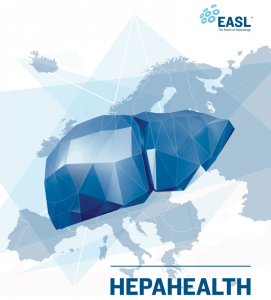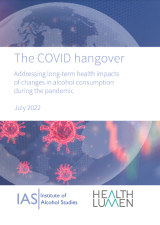
HepaHealth II: Preventing liver disease with policy measures to tackle alcohol consumption and obesity
Chronic liver disease (CLD) causes 1.8% of all deaths in Europe. Without policies to mitigate harmful alcohol consumption and obesity, that proportion will continue to increase. This major study, commissioned by EASL and supported by an unrestricted education grant from Bristol-Myers Squibb and Gilead, was carried out over the past 3 years and estimates the impact of policy interventions targeting alcohol and obesity on the incidence of CLD and primary liver cancer in France, the Netherlands, and Romania. The project builds on our previous work published in 2018.
Our peer-reviewed microsimulation model was employed to project trends in alcohol consumption and body mass index (BMI) from 2022 to 2030. We modelled the incidence of CLD and liver cancer under three policy scenarios versus an inaction scenario. All policies had an important impact ranging from a 2% to 7% reduction in annual incidence of CLD and liver cancer by 2030. The most effective scenarios are an increased Minimum Unit Pricing (MUP) of €1 on alcohol or introducing a set of complementary public health policies targeting an increased MUP, a sugar sweetened beverage (SSB) tax, and a volumetric tax that target both alcohol consumption and obesity.
View the poster presented at the EASL Congress in Vienna (June 2023)

Estimating the long-term health impacts of changes in alcohol consumption in England during the COVID-19 pandemic
Alcohol consumption patterns in England changed during the COVID-19 pandemic. Between one-fifth and one-third of adults increased their alcohol consumption, with a similar proportion drinking less. There was a 20% increase in alcohol-specific deaths in England in 2020 compared with 2019, and this trend persisted through 2021. Alcohol harm includes disease morbidity and mortality, healthcare costs, and wider social consequences. This study aimed to quantify future health, healthcare and economic impacts of changes in alcohol consumption observed during the COVID-19 pandemic using the well-validated HealthLumen microsimulation model.
Three alcohol consumption scenarios were looked at, and in all three the model projected a significant increase in the incident cases of disease, mortality, and healthcare costs. If consumption does not return to 2019 levels or lower, the modelling shows that England could see an additional 147,892 cases and 9,914 additional premature deaths from nine alcohol-related diseases, costing the NHS £1.2bn.
The report concludes that a comprehensive alcohol strategy is needed to harmonise policies across the UK, with a coherent set of evidence-based policies: increased resources for alcohol treatment and support; price interventions through the new alcohol duty system; the introduction of minimum unit pricing in England; adding public health as an objective of the licensing system for alcohol outlets; and improving alcohol marketing regulation, to reduce the reach and appeal of marketing to those vulnerable.
View NIHR Report
View Data Appendix
View Results Appendix
View Technical Appendix
View Policy Report from the Institute of Alcohol Studies
View editorial in the British Journal of Hospital Medicine